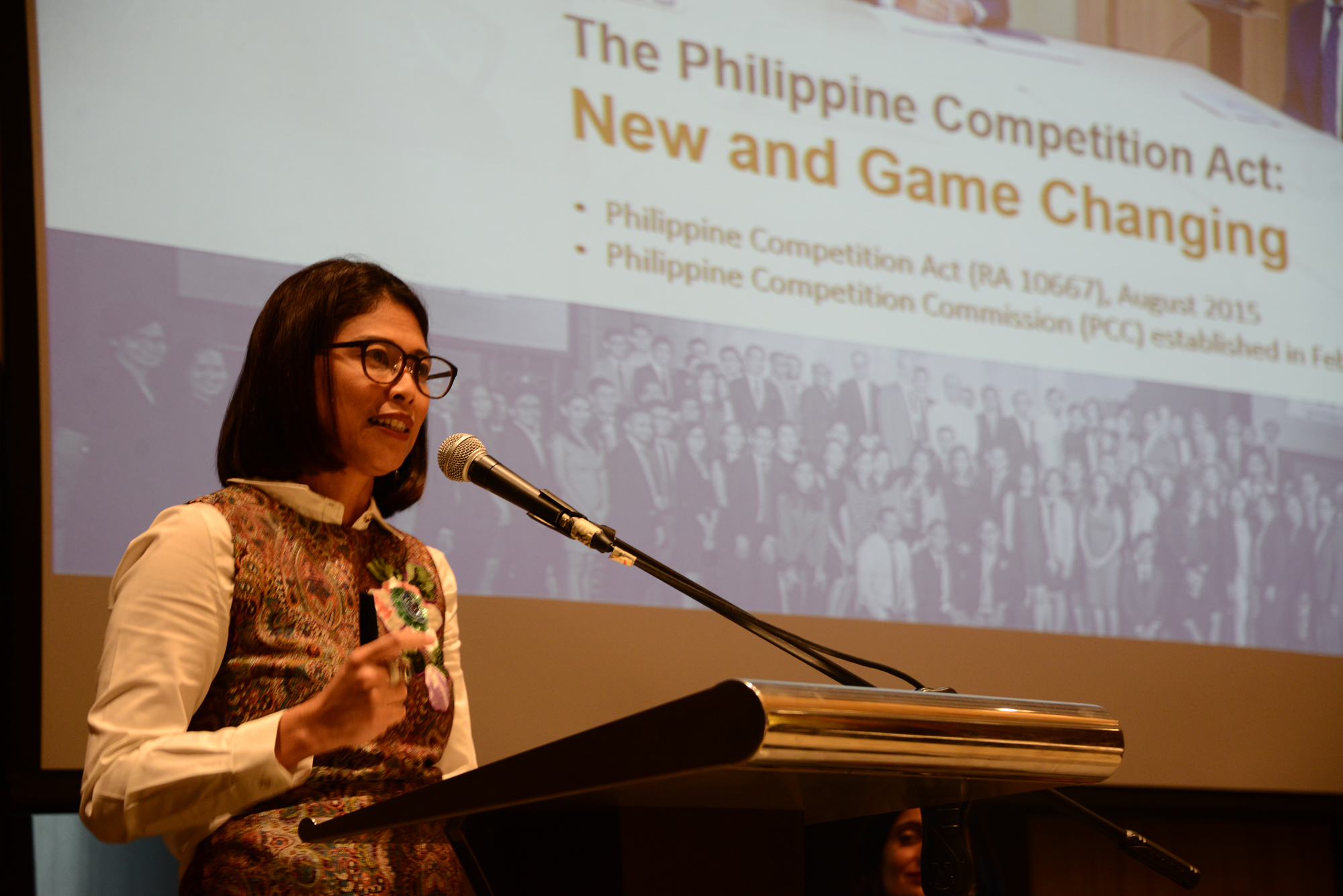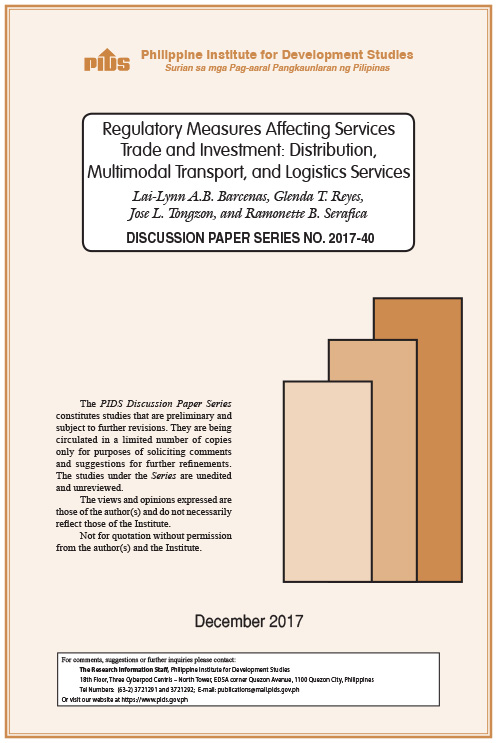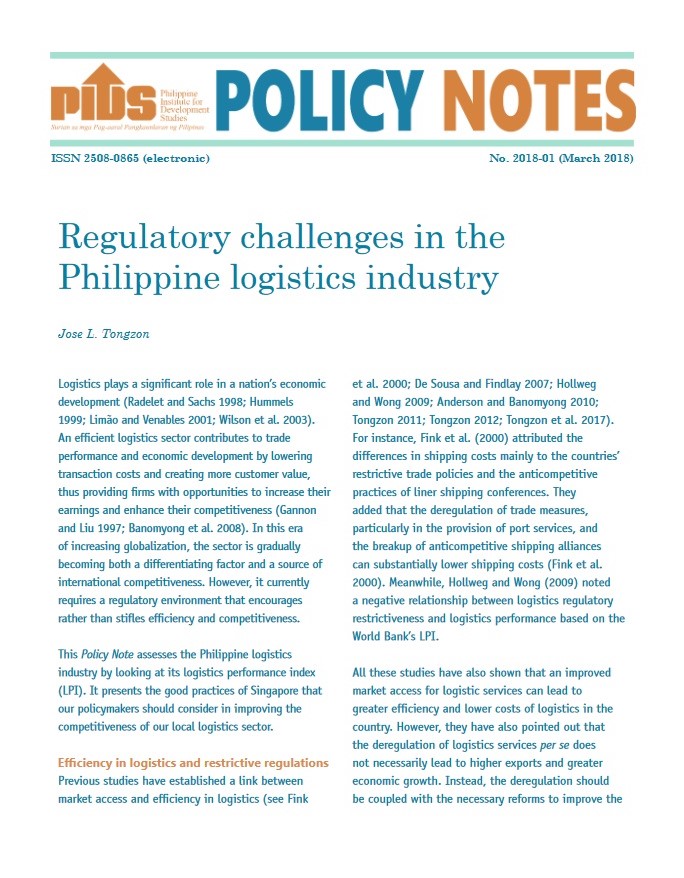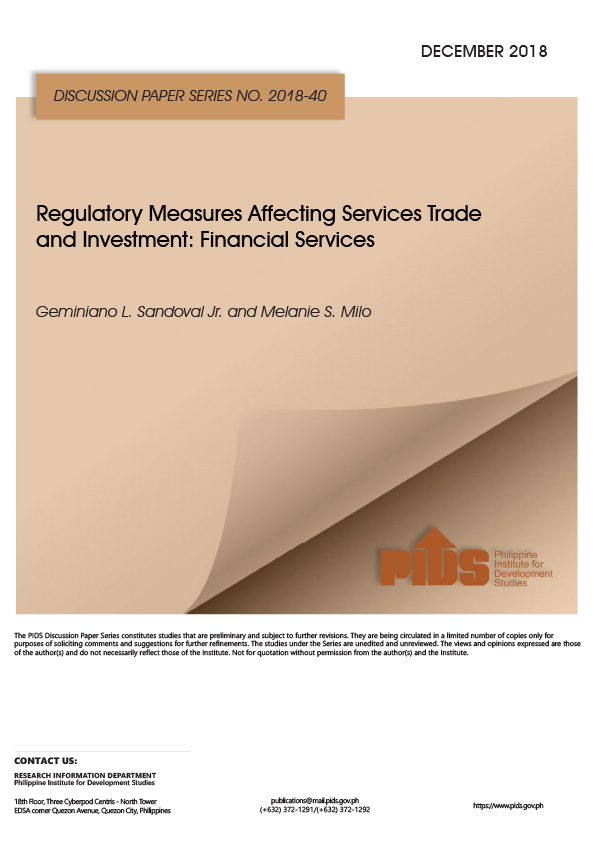
Two years after the ratification of the Philippine Competition Act (PCA), Filipinos still have low awareness of the importance of competition in the market.
This was revealed by Commissioner Stella Quimbo of the Philippine Competition Commission (PCC) in a recent forum on regulation and governance jointly organized by the Philippine Institute for Development Studies and the Australian National University.
According to Quimbo, “very few people actually have an appreciation for competition concerns.” In a 2017 awareness survey conducted by the PCC with a sample of 1,200 respondents, Quimbo said “76 percent agreed that price fixing is unfavorable while 74 percent wrongly believed that when competitors divide the market into territories, consumers benefit.” Furthermore, 68 percent “cannot say for sure if they prefer to have more choices in the market”, which according to her is a clear indication that “the Filipino consumer does not feel empowered.”
Quimbo also cited a survey conducted by the Asian Institute of Management that showed that only 11 percent of firms have heard of the Commission, adding that people still mistake the PCC for other agencies such as the Philippine Sports Commission and the National Competitiveness Council.
This lack of familiarity, she warned, shows that small and medium enterprises (SMEs) might be unknowingly engaging in anticompetitive agreements or conducts, which are serious violations of the Act.
Citing a separate survey funded by the Asia-Pacific Economic Cooperation, Quimbo said that SMEs “cannot exactly identify how big businesses are anti-competitive”, adding that that they don’t know how to report possible abuses that might be committed by bigger and dominant firms.
“The challenge is to make consumers become more familiar of competition law because they can be important triggers for opening cases,” she explained.
Quimbo also emphasized the need to work on strengthening the country’s institutions. In the 2017 Executive Opinion Survey, businessmen in the Philippines identified inefficient government bureaucracy, inadequate supply of infrastructures, corruption, ineffective tax regulations, disproportionate tax rates, and political instability as factors affecting ease of doing business in the country—which, according to Quimbo, are related to weaknesses in institutions.
She argued that in countries where institutions are weak, competition policy is important because it “plays a more meaningful role at least vis-a-vis regulations”. The existence of private players, for one, can help competition agencies monitor abuse of market power, she said.
‘Game-changing legislation’
The Act, which Quimbo described as a “game-changing legislation”, has a mandate to protect the welfare of the consumers, explaining that the penalties it can impose on errant firms are “among the largest defined in any Philippine law”.
Specifically, the law’s mandate is to prohibit anticompetitive agreements, abuse of dominant position among firms, and transactions that are found to substantially lessen competition (SLC) in the market. Other violations, according to PCC, include price-fixing (when competitors collude to fix prices of goods and services) and bid rigging (when parties coordinate their bids, rather than submit independent bid prices).
“When there is SLC, consumers lose because prices are higher, quality would be lower, choices are limited, and innovation would slow down,” Quimbo pointed out.
To increase the awareness of Filipinos on the country’s competition policy, Quimbo said the PCC should strengthen its partnership with agencies, organizations, academe, and the media. She added that the PCC also needs to work with the government to address policies that cause anticompetitive behavior among private firms. ###
This was revealed by Commissioner Stella Quimbo of the Philippine Competition Commission (PCC) in a recent forum on regulation and governance jointly organized by the Philippine Institute for Development Studies and the Australian National University.
According to Quimbo, “very few people actually have an appreciation for competition concerns.” In a 2017 awareness survey conducted by the PCC with a sample of 1,200 respondents, Quimbo said “76 percent agreed that price fixing is unfavorable while 74 percent wrongly believed that when competitors divide the market into territories, consumers benefit.” Furthermore, 68 percent “cannot say for sure if they prefer to have more choices in the market”, which according to her is a clear indication that “the Filipino consumer does not feel empowered.”
Quimbo also cited a survey conducted by the Asian Institute of Management that showed that only 11 percent of firms have heard of the Commission, adding that people still mistake the PCC for other agencies such as the Philippine Sports Commission and the National Competitiveness Council.
This lack of familiarity, she warned, shows that small and medium enterprises (SMEs) might be unknowingly engaging in anticompetitive agreements or conducts, which are serious violations of the Act.
Citing a separate survey funded by the Asia-Pacific Economic Cooperation, Quimbo said that SMEs “cannot exactly identify how big businesses are anti-competitive”, adding that that they don’t know how to report possible abuses that might be committed by bigger and dominant firms.
“The challenge is to make consumers become more familiar of competition law because they can be important triggers for opening cases,” she explained.
Quimbo also emphasized the need to work on strengthening the country’s institutions. In the 2017 Executive Opinion Survey, businessmen in the Philippines identified inefficient government bureaucracy, inadequate supply of infrastructures, corruption, ineffective tax regulations, disproportionate tax rates, and political instability as factors affecting ease of doing business in the country—which, according to Quimbo, are related to weaknesses in institutions.
She argued that in countries where institutions are weak, competition policy is important because it “plays a more meaningful role at least vis-a-vis regulations”. The existence of private players, for one, can help competition agencies monitor abuse of market power, she said.
‘Game-changing legislation’
The Act, which Quimbo described as a “game-changing legislation”, has a mandate to protect the welfare of the consumers, explaining that the penalties it can impose on errant firms are “among the largest defined in any Philippine law”.
Specifically, the law’s mandate is to prohibit anticompetitive agreements, abuse of dominant position among firms, and transactions that are found to substantially lessen competition (SLC) in the market. Other violations, according to PCC, include price-fixing (when competitors collude to fix prices of goods and services) and bid rigging (when parties coordinate their bids, rather than submit independent bid prices).
“When there is SLC, consumers lose because prices are higher, quality would be lower, choices are limited, and innovation would slow down,” Quimbo pointed out.
To increase the awareness of Filipinos on the country’s competition policy, Quimbo said the PCC should strengthen its partnership with agencies, organizations, academe, and the media. She added that the PCC also needs to work with the government to address policies that cause anticompetitive behavior among private firms. ###












